Whatever the reason, I'm learning not to question promptings to do good but rather simply to follow them. I'm learning to trust, without seeing the end, that the end will be better than I ever could have imagined it. I'm learning to trust that the blessings I long for most in my life will come, as Elder Holland declared, by and by. See beyond your pain  It's easy for all of us to get so absorbed in our own trials that we lose perspective. And with that loss of perspective often comes also the loss of another sight — one that sees the way forward. Many singles feel so burdened by the loneliness and heartache of singles life that all they see in their future is an eternity of loneliness and heartache. Such an outcome should not surprise. After all, your focus becomes your reality. Singles who know the depth of that despair from seeming ever so out of reach of desired blessings intimately know loneliness and heartache. So of course singles would feel comforted and appreciative of Elder Holland's early and earnest recognition of that familiarity. But notice what immediately followed. Elder Holland was just as eager and earnest in recognizing the depth of despair many trapped in a lonely marriage feel, seemingly ever so out of reach of escape from their familiarity with loneliness and heartache. Without recognizing the pain others feel, it's easy to become so absorbed in our own pain that we can't see anything else. Our pain becomes so enlarged we think it not only fills our world but that it is the world. Trust in Him always That's one of the comforting aspects of Elder's Holland's remarks. He reminds us that, regardless of our individual situations, we all feel pain. We all ache under the burden of trial. We all long for relief. Yet we often pray for freedom and relief on our schedule rather than for faith to rely on God's. As we plead with heaven to lighten our load, our pleadings will be answered, though sometimes not how or when we would wish. As Elder Holland reminds us all,
But then Elder Holland cut straight to the truth at the crux of the matter.
How did people come to believe that all suffering is necessarily bad? Whatever its source, Elder Holland rightly suggests some suffering isn't bad. In fact, I dare to declare some suffering is necessarily good. Rise above your trouble  No doubt those steeped in their own pain will find it difficult to believe any suffering could be good, let alone necessarily good. As already noted, it's easy to be so absorbed in one's own troubles that it's difficult to see how those troubles could ever be stepping stones to tranquility. And yet that's precisely why some pain is necessarily good. Henry Ward Beecher once said our troubles are "the tools by which God fashions us for better things." It is through our trials that we become refined and more of our best selves. It is through our trials that we develop the characteristics of godhood. It is through our trials that we come to know God. How else could He be known? Elder Holland says as much when he declared,
We all have pain in this life. But when we look beyond our own pain to see the pain in others, we find it easier to see our own in perspective. We find it easier to reach out to help others. We find it easier to see meaning and purpose in our own suffering. And we find it easier to trust God through bad seasons as well as good ones. We find it easier to walk in faith and confidence that the promised blessings will come to us by and by. And that will bring us more joy in our journey.
0 Comments
Part of what enabled him to do this is the Restoration’s fulfillment of the hopes of ancient prophets and saints. They looked forward to the Restoration as a time when all gospel blessings would be enjoined together. Indeed, we who live today have the glorious blessing of the fulness of the Lord’s gospel. And those fruits can enable us to have a perfect brightness of hope for ourselves, our world, and our future. See the blessings  Elder Holland begins with a list of what he would be looking for in religion were he living in 1820. He and his wife imagined themselves transported back in time with the same spiritual longings that many of the world’s inhabitants have possessed throughout time. Elder’s Holland’s list provides a wonderful review of the glorious truths restored to humanity — the true nature and character of God, a clearer understanding of God’s plan for His children and especially the role of the Savior in that plan, an additional scriptural witness that enhances one’s understanding of the Lord’s life and ministry, and true priesthood authority to dispense every ordinance required for salvation and exaltation. Elder Holland saved the crowning blessing for last. In his own words, he would have searched
Indeed, the blessings which the temple extends to bind the living and the dead across eternity truly crown the joy which living the restored gospel offers. As Elder Holland declared,
Look ahead  Elder Holland then directs our attention towards the future. The fulfillment of the hope of ancient prophets and saints for their future can give us hope for the fulfillment of blessings in our future. Conquering the COVID-19 crisis is perhaps the most immediate of those hopes for the world. But once we overcome that challenge — and Elder Holland assures we will — other challenges will remain, such as hunger, poverty, safer schools, and the eradication of prejudice. And of course, truly conquering those physical challenges will require the adoption of spiritual solutions, what Elder Holland called
Elder Holland then gets deeply personal, and here is where he packs his best punch.
Isn’t that what we all hope for? Many LDS singles hope for a more perfect life, yet marriage never made anyone’s life suddenly perfect. You simply exchange one set of challenges for another. That said, the hope that marriage can improve one’s life is not unrealistic, especially if one (to borrow a phrase from President Oaks) “marries right.” We LDS singles, no matter our individual circumstances, can and should hope for the achievement of righteous blessings, not only even when that fulfillment seems impossible but especially when that fulfillment seems impossible. Feel the hope  I suppose that’s why this Conference address touched me. I’m in my mid-40s having never been married. What hope do I have not just of finding the right type of person who would want to marry me but also of having a family of my own, not just one I inherit from a now severed relationship? I think Elder Holland would say I have every reason to hope. And so do you. The God who has performed miracles in the past can and will perform miracles in our present and our future. I echo with Elder Holland the message of a returned sister missionary in Johannesburg: “[We] did not come this far only to come this far.” Great and glorious blessings await each of us as we stand firm in our faith and continually choose hope over despair. Truly, the Restoration has blessed us all. The hope of past believers fulfilled gives us hope our present desires for righteous blessings will not be in vain. Choose that faith over fear. Choose that hope over despair. When we walk in the perfect brightness of that hope, we’ll progress towards our best life. And that will bring us more joy in our journey.
It wouldn’t be so bad if we’d stop comparing ourselves unfairly. Whether against other people or some idealized standard, many Latter-day Saints feel they fall short of what and where they should be. And many of those Latter-day Saints are single. They look at their lives and think they should be married by now. It’s then easy to jump to the conclusion that something must be wrong with them and that’s why they’re still single. Other LDS singles reach a corollary conclusion with just as much erroneous logic. They believe they’re not good enough — not handsome or pretty enough, not funny enough, not cool enough, not whatever enough. If only they were a more attractive person, they reason, then they wouldn’t be stuck in their single status. That’s why I love Elder Holland’s remarks. He reminds us that we are good enough, that we don’t need to bridge today the entire distance between where we are and where we want to be, that our journey can be joyful if we improve our approach to it. We can be perfect . . . eventually. Lighten up  That last word eventually is key. It reminds us that our journey is more than just a few steps. Our journey comprises many, many steps — more than we can possibly take in this mortal life. Perfection, the final result of reaching our final destination, won’t come in this life. Why then give us the commandment to be perfect? Elder Holland believes at least one reason is to give glory to God and show what we can achieve in the eternities to come. Knowing the perfection of God can create gratitude that our imperfections need not be the end of us. God in his perfection will make up for what we lack. Of course, that doesn’t justify ignoring our covenants. Elder Holland explains,
How often do we LDS singles criticize ourselves for whatever failings we have? When we let go of our need to be perfect now, we’ll find it easier to let go of our repeating patterns of self-criticism. Look for good enough  Elder Holland reminds us that “except for Jesus, there have been no flawless performances on this earthly journey we are pursuing.” He then advocates avoiding excessive expectations for achieving perfection in others as well as in ourselves. That got me thinking. Many LDS singles expect perfection in the eternal companion they seek. They create this ideal that very few if any could actually reach. After all, you don’t want to spend eternity with imperfect. But by limiting their prospective candidate pool, they limit their probability of success. They make it harder to find that eternal companion. Elder Holland reminds us that no one is perfect. That means the eternal companion you’re looking for is imperfect. If you go about looking for perfection, you’ll not likely find your eternal companion because that imperfect person will never fit your insistence on perfection. Since the person you seek is not perfect, then you should really be looking for good enough. That doesn’t mean you have no standards. Good enough implies that some standards have been met. You just don’t want so many standards that you reduce your likelihood of success too much. Having standards that are too exacting can yield the same result. Balance is the key. Be willing  When we partake of the sacrament each week, we do not pledge to be perfect. We do not witness we’ll take upon ourselves the name of Christ, always remember him, and keep his commandments. We witness we are willing to do these things (see D&C 20:77). That pledge of willingness allows space for slips and failings. We strive for perfection while at the same time forgiving both ourselves and others for shortcomings. If we were perfect, we wouldn’t need saving. So we don’t need to be perfect to be saved. We just need to be good enough — good enough to receive the gift of grace that bridges any gap. And if we just need to be good enough, then that’s all anyone else needs to be as well. I love Elder Holland’s concluding remarks:
May we all stop looking for perfection in this mortal life while never stopping to strive after it as part of our more eternal journey. When we do, we’ll have more joy in our journey.
post-Conference topic. Other than the obvious reason for selecting it (I mean, it’s Elder Holland, so need I say more?) I was really impressed with the applications this address has for those called to minister to singles. We all understand that Elder Holland wasn’t specifically speaking about LDS singles. But General Conference speakers typically don’t speak about any one demographic in the Church. That’s why it’s called General Conference. However, if you do home teach any singles, hopefully Elder Holland’s remarks will inspire you to take your performance up a notch (or two or three). Single mothers need it most  The first application of Elder Holland’s remarks to singles is his rather obvious introduction. Single sisters, particularly those with children at home, are the singles who need real home teachers the most. One single sister I knew while serving as a stake single adult rep had seven children from two prior marriages, the oldest being 15. I made certain her elders quorum president knew she needed real home teachers who could play the role of surrogate father. And I’m grateful he responded. It’s no accident Elder Holland begins his remarks with a story of ineffective home teachers failing to support a single adult. Being the black sheep in our family-centered culture, LDS singles are easily ignored, neglected, and forgotten. It’s truly tragic, especially when a single sister is straining to raise children all by herself. Other singles need it too  That’s not to say singles without children don’t need home teachers also. So it’s equally tragic when any LDS single has no home teachers. I’m a case in point. I have no home teachers, even though I’ve asked for them repeatedly. How I wish someone would “watch over [me] always, and be with and strengthen [me]” (D&C 20:53)! Let me be fair. Each of my multiple requests for home teachers have included the insistence they be real — the kind Elder Holland extols. I want real, and that’s no less true now than when I said it almost three years ago. That means I’m not interested in receiving home teachers who want nothing more than to check off a box on a monthly to-do list so they can feel good about themselves. What a waste of time! But if they want to support me and strengthen me and encourage me to move forward in my life, then I’ll gladly make time for home teachers. In the three years I’ve been in my current ward, I’ve constantly made that request. And in all that time I’ve never had home teachers. I’m not quite sure what that means. Does that mean there aren’t any real home teachers in my ward? Or does that mean all the real home teachers have been given “more effective” assignments? We all need support 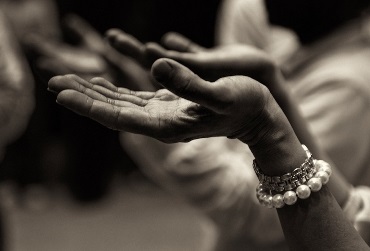 I suspect I’m not alone when it comes to home teaching and LDS singles. What do you do if you need home teachers but all your requests for them go unanswered? You can pray the Lord will open the eyes and the hearts of his servants. I recall the parable of the unjust judge (see Luke 18:1-8). I’m sure not everything for which we could pray qualifies via that parable, but I’m sure asking for the support of real home teachers does. It’s hard to mention prayer here without fasting. If nothing else, fasting can help us come nearer to God so that we feel more readily the support His love offers. Regular temple attendance can help in that regard as well. Certainly don’t stop requesting home teachers. Elder Holland provides the model to which every priesthood holder should aspire. Brethren, the appeal I am making tonight is for you to lift your vision of home teaching. Please, in newer, better ways see yourselves as emissaries of the Lord to His children. That means leaving behind the tradition of a frantic, law of Moses–like, end-of-the-month calendar in which you rush to give a scripted message from the Church magazines that the family has already read. We would hope, rather, that you will establish an era of genuine, gospel-oriented concern for the members, watching over and caring for each other, addressing spiritual and temporal needs in any way that helps. Now, as for what “counts” as home teaching, every good thing you do “counts,” so report it all! Indeed, the report that matters most is how you have blessed and cared for those within your stewardship, which has virtually nothing to do with a specific calendar or a particular location. What matters is that you love your people and are fulfilling the commandment “to watch over the church always.” I feel very justified in insisting my home teachers be real.
And of course, if you’re a home teacher, you want to be the kind of home teacher you want to have. It’s called the Law of Restoration (see Alma 41:15). In life we all get what we give. My final suggestion is patience. If you have imperfect home teachers, at least you have home teachers! We’re all walking construction zones, and that applies whether we’re single or married. Home teachers are not exceptions. Let’s patiently and gently but firmly encourage the priesthood brethren in our wards to be the home teachers we need. We’ll all have more joy in our journey when we do.
As I read his address, I began to see more of the profundity behind the simple truth that we are children of a loving Heavenly Father. Elder Hallstrom repeatedly proclaims throughout his remarks that this identity should be the preeminent one in our lives. And that caught my attention, because often I’m not convinced it really is, especially for LDS singles. Remember the true center  The culture of the Church centers on family. I wish it centered on Christ. After all, everything else about the Church does. The doctrine, the scriptures, the priesthood, the ordinances — everything about the Church centers on Christ except for the family-centered culture. That’s why the mark of belonging is being married with kids. And you need both elements to belong, hence the struggles of childless married couples as well as singles to feel like they really fit in. If the culture centered on Christ, then the mark of belonging would be discipleship of the Savior. That’s one reason why Elder Hallstrom’s address resonated with me. What if we saw each other not through the lens of martial status but rather that of divine lineage? What unity could we develop with that perspective? How much better prepared would we as a people be to receive the Lord when He comes again? Our Lord has said, “If ye are not one, ye are not mine” (D&C 38:27). I don’t know about you, but I want to be the Lord’s. Remember your divine heritage  Early in his remarks, Elder Hallstrom shares, “A correct understanding of our heavenly heritage is essential to our exaltation.” Why is that? Let me answer with another question. How do we really understand our purpose here in mortality unless we understand where we came from? Knowing we’re children of God promotes faith in Him that our existence here is part of a much grander plan to make us glorious beyond description. That perspective can help us face the storms of life. Elder Hallstrom referenced many of those storms when he said, In real life, we face actual, not imagined, hardships. There is pain—physical, emotional, and spiritual. There are heartbreaks when circumstances are very different from what we had anticipated. There is injustice when we do not seem to deserve our situation. There are disappointments when someone we trusted failed us. There are health and financial setbacks that can be disorienting. There may be times of question when a matter of doctrine or history is beyond our current understanding. Certainly that list of trials describes life for many LDS singles. And so the questions Elder Hallstrom poses are just as pertinent. What is our response when confronting difficulty? Do we forget our divine heritage and cower in fear before the very experiences that we need to grow and claim the glory that is our birthright? Or do we remember our divine heritage and embrace the challenges before us, looking for the opportunities in the experiences that form part of the plan our Heavenly Father has instigated for our eternal destiny? Elder Hallstrom shares a remark made by Elder Jeffrey R. Holland while teaching about this principle. Said Elder Holland, “You can have what you want, or you can have something better.” What a perspective!
We live in a world that can cause us to forget who we really are. The more distractions that surround us, the easier it is to treat casually, then ignore, and then forget our connection with God. Unfortunately, for many LDS singles the family-centered culture of the Church can be a part of that world causing them to forget who they really are. We LDS singles can focus so much on the marital status we don’t have that we forget the much more meaningful identity we do have. Remembering that identity can help us better access our Lord’s Atonement, which can strengthen us as we encounter the pains, the heartbreaks, the injustices, and the disappointments that come to us in mortality.
And here’s the best part. If we LDS singles would focus more on our discipleship than on our marital status, we could change the culture that presents us with one of our greatest challenges. We could influence its center to move towards Christ. We could all — single and married — come together and truly be one. We could increase our power as a people to stand firm in support of our covenants and the truths of the gospel, including the institution of the family. So remember who you are. That divine heritage can help you to reach for the light and have more joy in your journey.
Afterwards single ladies posted those remarks on social media with some inclusions of their own. “Yeah, you need to get busy and do your priesthood duty!” That for me 20-year-old refrain doesn’t inspire anything positive and is inspired more by issues within them rather than any issue I have. That’s why I absolutely loved Elder Holland’s remarks at the conclusion of General Conference entitled “Tomorrow the Lord Will Do Wonders Among You.” Conference indeed presents high ideals, from which many of our own personal situations seem far removed. How ever can we bridge the gap? Elder Holland reminded us how the Atonement makes our improvement possible and that trying is what counts, even if we sometimes fail. As I’ve said before, it’s not about the destination; it’s about the journey. See the similarities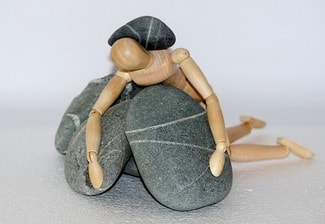 I struggled for many years with dating. Because I own my life, I take responsibility for how my life has turned out. That means the story I tell to explain why I’m still single lays the fault on me. It’s not that I didn’t want to be married. I just didn’t have the right attitude or project the right image to attract the type of woman I really wanted. True, most of my dating invitations failed miserably. For many years I felt trapped because my eternity seemed completely outside my control at the mercy of others who could never see the real me. But because I now own my life, I accept I wasn’t doing a good enough job of showing the real me to them. What always annoyed me were the ladies who always threw marriage quotes from General Authorities in my face. When I did manage to work up the courage to ask them out, they rejected my invitations in ways that made me feel completely worthless. Ladies, if you want us brethren to ask you out more, then you need to own your life and approach us more effectively. I understand you’re frustrated in not receiving the dating invitations you want. You feel trapped because your eternity seems completely outside your control at the mercy of others who don’t seem to see the real you. That’s not very different from the experience I and other single LDS men have had. Can we all come to a place where we start to see the potential in each other rather than the problems? Can we see each other the way God sees us, as brothers and sisters on the same eternal journey who have much more in common than we do different? I answer with a resounding yes. And Elder Holland’s recent conference talk shows us how.
What a glorious perspective! Too often we focus on the destination and consider ourselves as “less” because we haven’t yet arrived. Yet God sees us as “striving to be more” and so should we! It’s about the journey and not the destination! Elder Holland continues:
Just because we don’t see the way forward doesn’t mean it isn’t there. It is there. And when we partner with the Lord, He will not only help us to see the reality of the blessings we want but also provide help to secure them. After all, He created this world in which we are journeying! I love this perspective from Elder Holland:
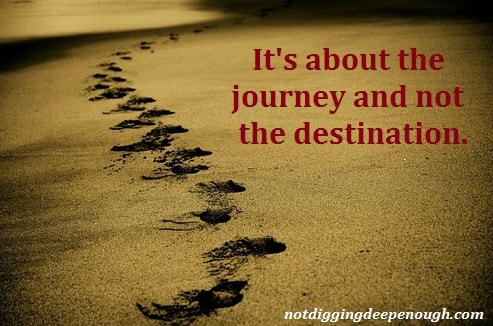 Let’s extend that grace to our neighbor. Let’s see each other more as God sees us. Let’s divert our energy from criticizing others for their failings to helping them overcome the obstacles that impede their journey home. In so doing, we’ll accelerate our own journey to the same heavenly destination. Tomorrow the Lord will do wonders among you because today He will do wonders with you and within you when you partner with Him, rely on His marvelous Atonement, and keep trying. May God bless each one of us so to do.
My mother has been diagnosed with anxiety as a mental illness. So hearing a General Authority — and an Apostle no less — openly embrace mental illness as the subject of his address needless to say piqued my curiosity. But I also found some wise counsel that applies to many of us LDS singles. Focusing on depression Elder Holland mentions an array of mental disorders but then narrows his remarks to depression. He then quickly defines what he means by that word: But today I am speaking of something more serious, of an affliction so severe that it significantly restricts a person’s ability to function fully, a crater in the mind so deep that no one can responsibly suggest it would surely go away if those victims would just square their shoulders and think more positively—though I am a vigorous advocate of square shoulders and positive thinking! I think that this description applies very aptly to many LDS singles today. I saw it at a recent singles fireside held in my stake. Only a handful of people were in attendance, and I quickly ascertained why no more than a handful had made an appearance. Everyone seemed so discouraged as to be half dead! Ironically, the subject of that fireside was hope, and I freely admit that I left with most of my own hope and optimism stripped from me. Fortunately, Elder Holland had very much the opposite effect. Believe in miracles I devote several parts of my upcoming book to this very subject. And I can sum it all up — there is always hope because there is always Christ. Elder Holland says no less. Believe in miracles. I have seen so many of them come when every other indication would say that hope was lost. Hope is never lost. If those miracles do not come soon or fully or seemingly at all, remember the Savior’s own anguished example: if the bitter cup does not pass, drink it and be strong, trusting in happier days ahead. Don't be afraid to ask for help Elder Holland advises us to seek help when our problems persist. If things continue to be debilitating, seek the advice of reputable people with certified training, professional skills, and good values. Be honest with them about your history and your struggles. Prayerfully and responsibly consider the counsel they give and the solutions they prescribe. If you had appendicitis, God would expect you to seek a priesthood blessing and get the best medical care available. So too with emotional disorders. Our Father in Heaven expects us to use all of the marvelous gifts He has provided in this glorious dispensation. We singles too often don’t ask for help. Maybe it’s because our leaders very often don’t understand what we experience, especially if they married while they were young. Or maybe it’s because we singles spend too much time focused on what we want that we remove ourselves from being able to help. If we filter everything through dating considerations, we won’t associate much if at all with those who aren’t “marriage material”. Very often those who need our help the most are those who we know the least, or those we want to know the least. The sun is always shining As much as the challenges of LDS singles life I've witnessed discourages me, I'm continually amazed at how optimistic I am for the future. So I'm glad that Elder Holland reminded us that Also let us remember that through any illness or difficult challenge, there is still much in life to be hopeful about and grateful for. We are infinitely more than our limitations or our afflictions! Sound familiar? Where have we heard that before? Oh, yes! You are not your circumstances!
It also reminds me of some of the weirdest weather I've ever experienced. I remember one day driving in Northern Idaho and suddenly encountering a blinding snowstorm. I had to slow down because the snow was coming down so thick and fast. And yet the funny thing is I could see the sun shining at the same time! Too often when difficulties come we see only the blizzard and how it obstructs us or makes our journey more difficult. Yet the sun is always shining. We can see it if we'll look for it. God still loves us, and we can feel that love more fully when we open ourselves to it. Our focus becomes our reality, so when we focus on the storm, guess what our life feels like? But when we focus on the sunshine, guess how we feel then? I love the way Conference messages intertwine with my life experiences to root me further in gospel truth. How thankful I am for Conference! |
Author
Howdy! I'm Lance, host of Joy in the Journey Radio. I've been blogging about LDS singles life since 2012, and since 2018 I've been producing a weekly Internet radio show and podcast to help LDS singles have more joy in their journey and bring all Latter-day Saints together. Let's engage a conversation that will increase the faith of LDS singles and bring singles and marrieds together in a true unity of the faith.
Comment
Joy in the Journey Radio encourages the free discussion of ideas but reserves the right to remove and/or block comments which do not conform to LDS standards.
Donate
Joy in the Journey Radio offers many free resources to help LDS singles everywhere, but it certainly isn't free! Help Joy in the Journey Radio in its mission to improve the lives of LDS singles by donating today.
Posts by Month
December 2022
Categories
All
|
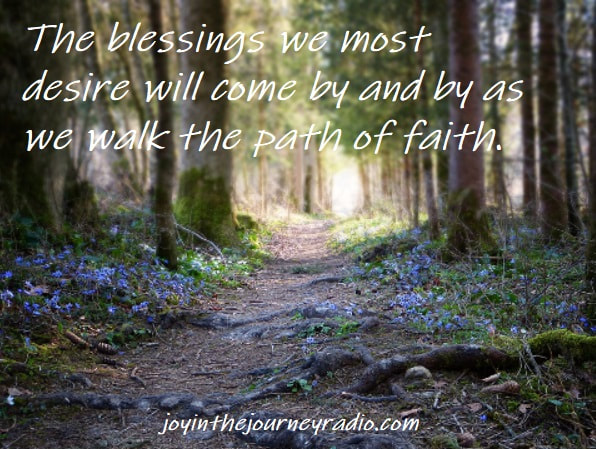
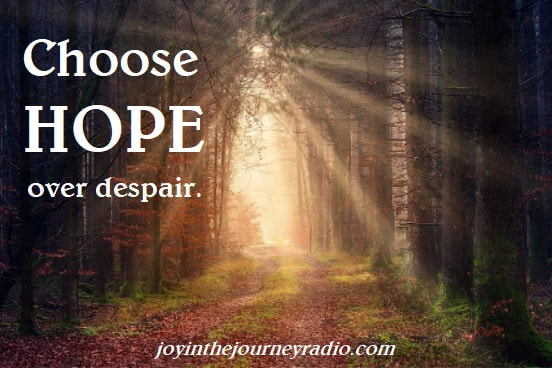

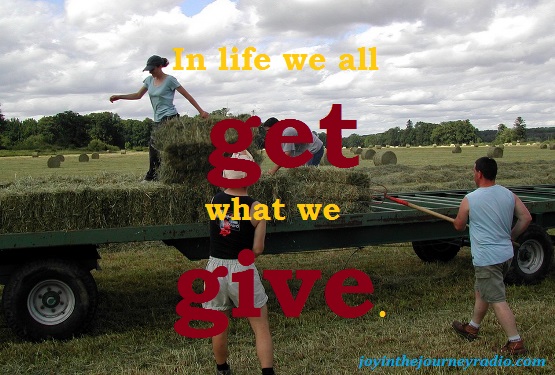

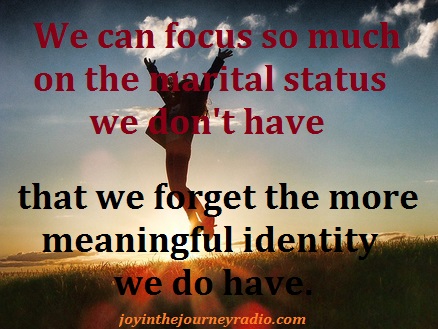
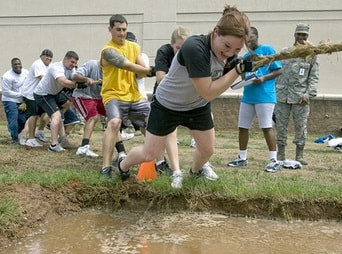

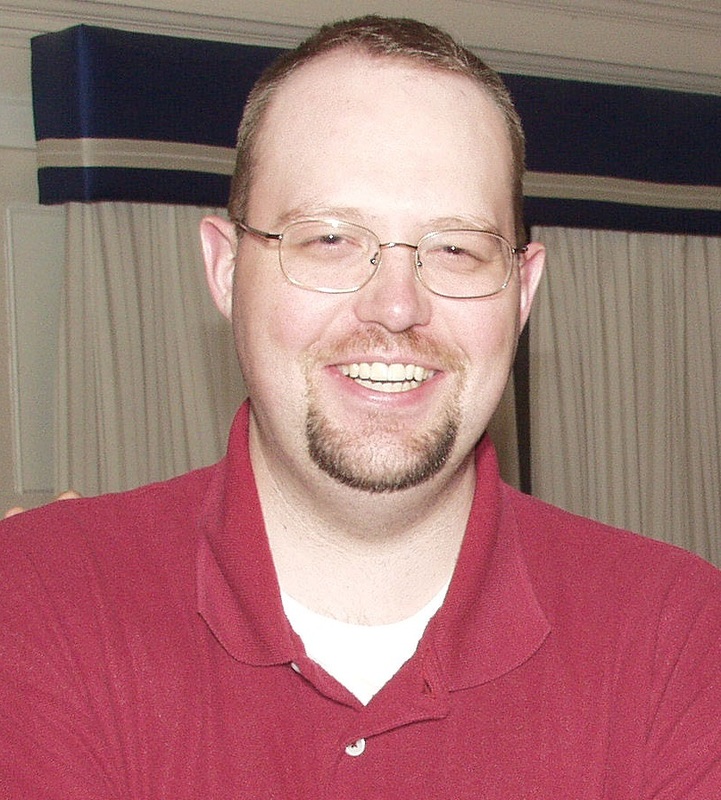
 RSS Feed
RSS Feed